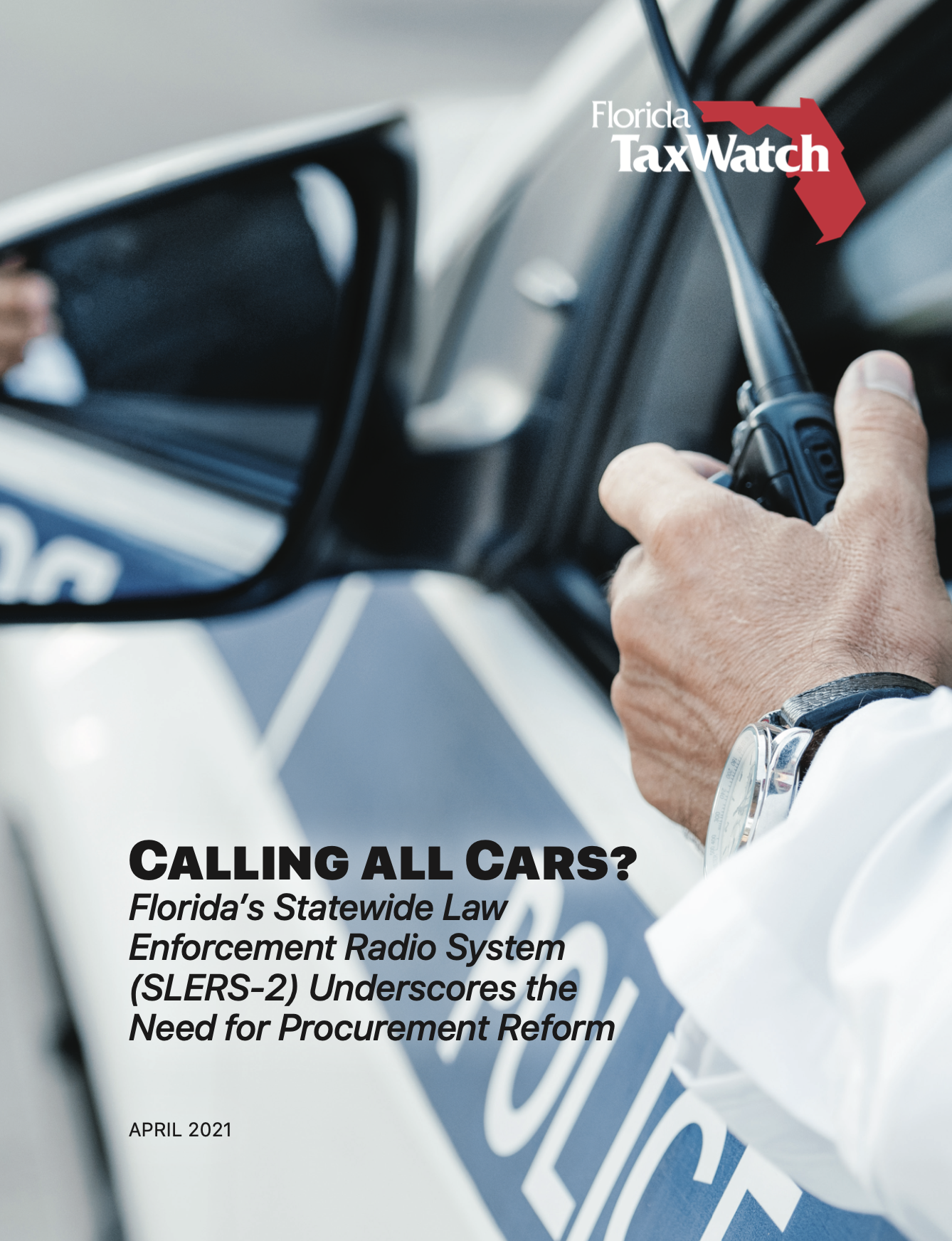Calling all Cars? Florida’s Statewide Law Enforcement Radio System (SLERS-2) Underscores the Need for Procurement Reform

The Statewide Law Enforcement Radio System (SLERS) is a single 800 MHz unified digital radio network that permits state law enforcement officers and other first responders across the state to communicate more effectively. In 2016, DMS initiated an Invitation to Negotiate (ITN) to replace the aging SLERS equipment, which is nearing end-of-life, with a new, non-proprietary, mission-critical P25 (SLERS-2) network, which would improve and expand SLERS coverage, reliability, and audio clarity. The ITN was unsuccessful. After a seven-month bid protest process and 14 months of negotiations with the new vendor that followed without a contract, DMS is no closer to a contract for a successor P25 SLERS network than it was in 2016.
The current contract between the Department of Management Services (DNS) and the current vendor L3Harris is set to expire in June 2021. So too is the $3 surcharge per criminal offense and non-criminal moving traffic violation that helps fund SLERS. Unless an extension is reached by then, DMS will take over the operation and maintenance of SLERS and any discussions with vendors would be subject to a new procurement. The SLERS-2 procurement underscores the need to overhaul Florida’s procurement system. Florida TaxWatch is calling on the Legislature to take necessary corrective actions to repair the bid protest process during the 2021 session, in time to guide the SLERS-2 procurement process.
Florida TaxWatch believes it is in the best interest of all Floridians for DMS and L3Harris to extend the current SLERS agreement through the end of FY 2025-26, to permit the transition to SLERS-2 and the decommissioning of the current SLERS legacy system. Any additional system costs could be offset to some degree should the Legislature repeal the sunset of the $3 fee per criminal offense and for all non-criminal moving traffic violations, which sunsets on June 30.
Documents to download
-
SLERS(.pdf, 2.16 MB) - 1451 download(s)